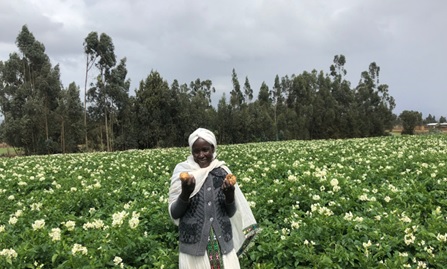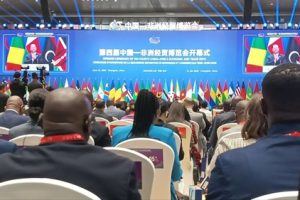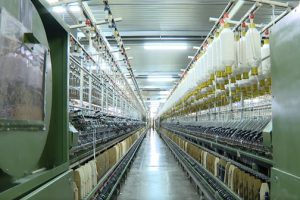
In vast parts of Ethiopia farmers are in the process of preparing for the autumn farming season and the completion of the irrigation and spring development work. It is believed that the series of agricultural activities will provide a wealth of experience and insights for the upcoming harvest season. During this time, agricultural activities; including crops, fruits, and livestock, are expected to take place.
As a nation with the agricultural laid economy, it is possible to upgrade the sector if everyone across the country can meet its expectations of agricultural works. In this regard, the Ethiopian Press Agency (EPA) has approached with Dawit Jiffar, Agriculture Bureau Head of Bunobedele zone in Oromia region to discuss about their readiness for the upcoming farming season.
Mentioning multi-purpose agricultural activity is being done in the zone; Dawit explained that major agricultural activities have been undertaking on coffee, crop development and other agricultural products. As to him, extensive work has been done in the zone during the recent irrigation wheat development. Although it was planned to cover 8,070 hectares of land with wheat seeds with Irrigation, it was able to cover more than the plan. Accordingly, 16,000 hectares of land has been cultivated and covered with seeds. It is predicted to harvest more than 520,000 quintals of crops from the land covered with seeds in the Zone, he explained.
So far, more than five hundred thousand quintals of product has been harvested. He also accentuated that the zone is now preparing for the summer-autumn agricultural activity. The preparation work is supported by training, and the zonal agriculture bureau is providing skills training to the farmers so that they can prepare in advance. At the same time, mobilization is underway.
Noting that, the training includes professionals, training of trainers will also take place to train the professionals. Once the plan is implemented, it will be easy to fully turn to the agricultural activity. Coupled with this, the cultivated land has already been separated. Thus, it is planned to cover about 174,000 hectares of land with various crops. He also stated that the current weather condition is particularly favorable for agricultural preparation, adding there are also farmers who have already started farm land preparation.
He also elucidated that there is a lot of agricultural works in the zone. As a result, numerous works have been done by youths in the field of fruits and vegetables, especially extensive work has been done in developing avocado. Seed breeding is still undertaking, especially in the three woredas of the zone through preparing seedling stations. 185,000 hectares of land has been cleared for cluster cultivation of Avocado products from the aforementioned seedling sites, he noted.
“Furthermore, it is planned to plant 85,000 banana seedlings in cluster farming system and about 60,000 seedlings have been planted. This year, our focus is on expanding urban agriculture. We are focusing on the fact that we have already identified that a lot of works must be done to meet the city’s fruit and vegetable needs. We are also working keenly in order to support the agricultural works with knowledge. The awareness raising training provided important skills for the city residents to plant a variety of vegetables in the open field so that they can at least be self-sufficient in urban agriculture,” he said.
Parallel with the aforementioned agricultural works, he mentioned that the zone is also working on the animal husbandry, especially urban agriculture. Therefore, it is being done at an excellent level. Livestock breeding has been done through artificial insemination. The expansion of animal husbandry contributes to the increase amount dairy products.
Currently, the city’s residents are using the dairy products which are produced through the urban agriculture. Explaining that they have established dairy center in Bedele city of the zone through making assessment, he said that there is still shortage in the animal resources and supply of products. If the supply is set up in a dispersed way, it will be convenient for both the supplier and the consumer. It is also possible to organize youths to work together in the established center. He also underlined that the development will contribute to job creation for the youth.
While speaking about the internal and external troubles that face Ethiopia, like drought and the problem in the Northern part of the country, he accentuated that the zone is implementing different activities to overcome those problems. Therefore, efforts are being made to increase animal resources through modern production methods. As the zone is suitable for livestock, fisheries and beekeeping, it is possible to work on agricultural related works alongside crop development, he pointed out.
According to Dawit, the work has already begun despite a lot of effort is needed as the demand of the zone as well as the country is very high. The main target of this project is to increase foreign exchange earnings through exporting various agricultural products. In particular, there is an opportunity to export livestock products and honey products. What is expected of us is to modernize the development, he underlined.
Undoubtedly, the time demands every development works; including agricultural works, to be supported with new technologies. For instance cluster farming is amongst the modernized technology which is of paramount importance to increase the product and productivity. In this case the zone is also benefited through adopting this technology. Accordingly, Dawit emphasized that his administration is working exhaustively in order to increase the product and productivity in the zone.
Mentioning that about 58,000 hectares of cluster crop production was carried out in this cluster system during the last fiscal year, he revealed that the zone is working to double the last year’s performance during the this year’s autumn production period. As to him, they are planned to implement the cluster farming in eight different crops. It is important to note that the contribution is significant in terms of increasing productivity.
Due to shortage of foreign exchange and rising of fertilizer prices globally, the supply is not expected to be as good as it used to be. As a result, homemade fertilizer preparation has been intensified at the regional level. Homemade fertilizers play an important role in regulating and maintaining soil fertility. Although it is not believed that it will completely replace the supply of fertilizer, it is important to use alternative methods to solve such problems.
Coupled with the preparation of manmade fertilizers, efforts are also being made to facilitate the supply of fertilizers. “We have requested the region to provide 135,000 quintals of fertilizer to the zone. About 33,000 quintals of fertilizer has been distributed out of the requested amount. If the rest is not available, the agriculture will be compensated by homemade fertilizer,” he added.
Noting that much of farming time has been wasted following the atrocities of the terrorist TPLF group, he explained that his zone is working on agriculture in different directions. “As leaders, professionals and farmers, we plan to cover the loss of agricultural land in various areas. The farmer knows that we are moving with multiple missions and responsibilities as a nation. Therefore, it is possible to say our administration and the farmers are working in unison and are motivated for better development,” Dawit further stated.
For him, coffee is one of the main products of the zone. Next to coffee corn is widely grown compared to other crops. In cluster production, corn production is reached to an average between 50 to 100 quintals per hectare. In terms of productivity, it has increased by up to five quintals per hectare. Sorghum, teff, pulses and oilseeds respectively can be also described as the major products in the zone coupled with vegetables and fruits.
Cognizant of the fact that the brokers between the farmers and the consumers are the biggest problem in this area; the Sunday market has begun to address this problem, he underscored. As to him, efforts are being made to link the farmer to the government-run enterprise and trade directly with the consumer. Mentioning that the zone is suitable for the aforementioned agricultural works and their readiness for the forthcoming farming period, he called up on any investor to invest in the zone.
In Ethiopia, Water + Seed + Fertilizer + Know-How= Improved Yield, Changed Lives – The World Bank
BY HIZKEL HAILU
The Ethiopian Herald 8 May 2022




